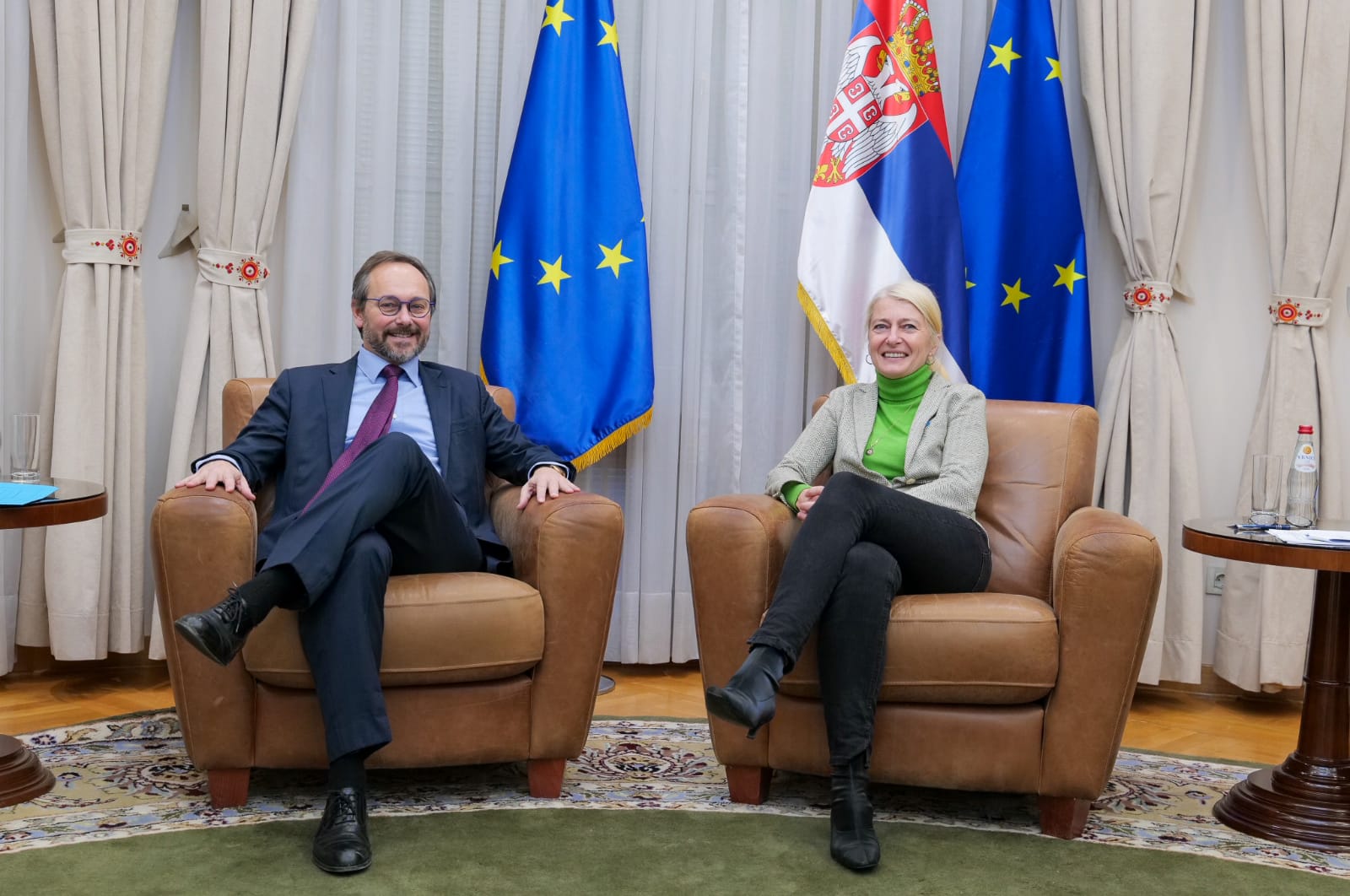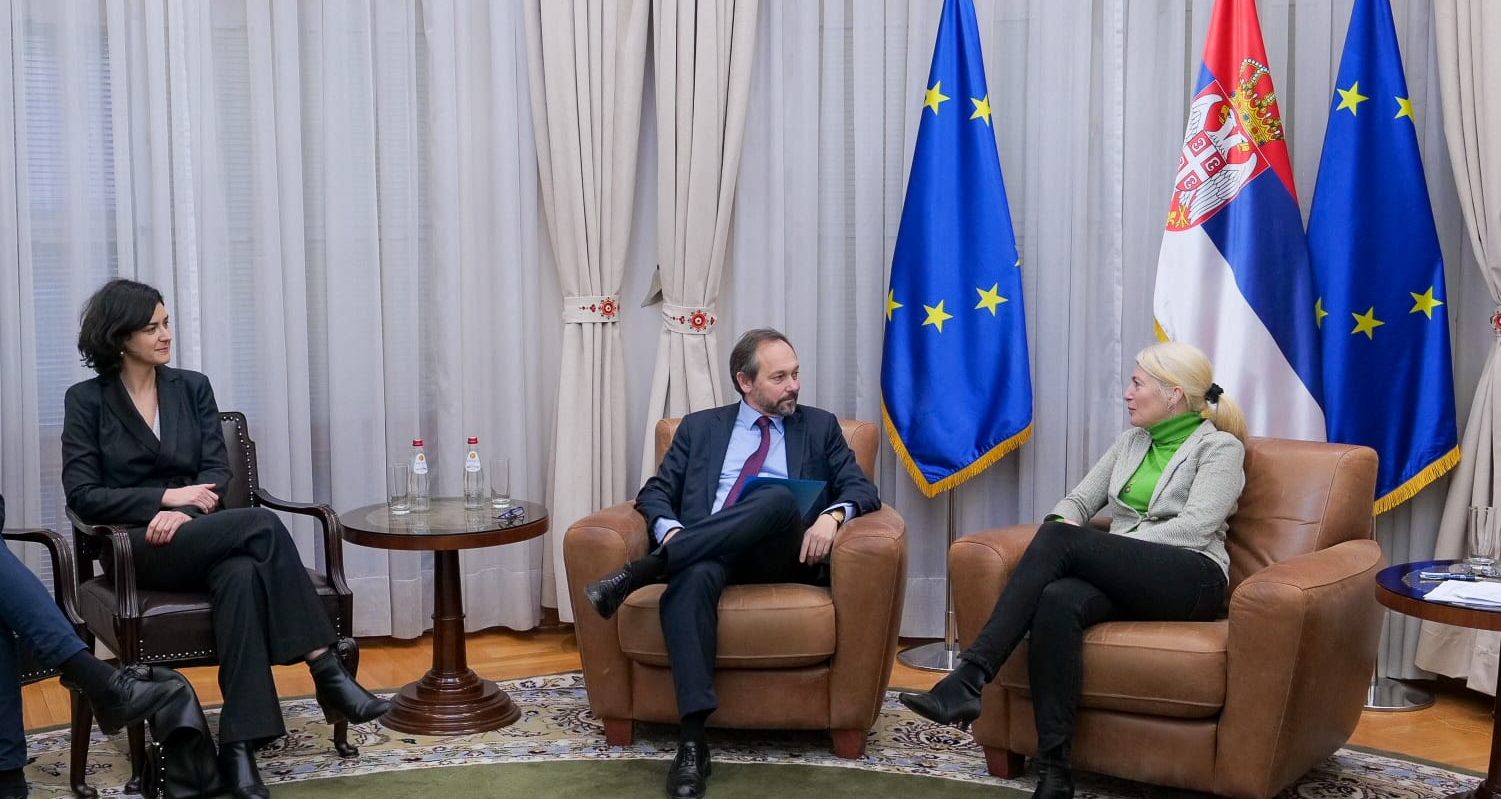The current moment for the development of science and innovation in Serbia is excellent, and after 11 years, we once again have a Ministry that combines science, technological development into innovation, these are some of the conclusions from the first meeting of the Minister of Science, Technological Development and Innovation of the Republic of Serbia, Dr. Jelena Begović, and the ambassador of the European Union in the Republic of Serbia by Emanuele Giaufret in Belgrade.
Giaufret also emphasised that he wants to create a different image of Serbia, that our country is not tied to crises, but to become a visible point when it comes to the efforts of the Government of Serbia to develop science and keep pace with the world.
“We want to work in that field with Serbia, as is the case in other activities, and innovation is a key topic for the EU, as well as the economic challenges that accompany it,” said Giaufret.
He expressed his satisfaction that the Ministry of Science, Technological Development and Innovation is headed by a minister who primarily cooperates with the Minister of Higher Education when it comes to the progress of science in Serbia and because they are in agreement and will work together in the interest of science and higher education.
They agreed that the process requires good communication, not only with other institutions and ministries, but also with the citizens of Serbia.

“Science can scare people, that’s why it’s necessary to work on better communication with citizens,” pointed out Minister Jelena Begović.
Minister Begović emphasised that, considering that she comes from science, she is, among other things, advocating for a better position of researchers and scientists in Serbia.
The EU ambassador expressed satisfaction and admiration for the efforts and plans for the construction of scientific centers in Serbia, such as the Biosens Institute, the Bio4 campus and the Center of Excellence in Kragujevac. In addition, they highlighted the importance of many projects, among which is the large SAIGE project whose goal is to improve the relevance and excellence of scientific research, and secondly to improve innovative entrepreneurship and access to financing sources for the growth of companies, so as to contribute to growth and competitiveness Serbian economy.
The EU has provided assistance to Serbia since 2001 of over 250 million euros to promote innovations in economic competitiveness in Serbia, helping both the public and private sectors in the country. As part of the European Union’s Horizon 2020 program, 135 million euros were invested so that scientists and innovators from Serbia could cover the costs of research and development. The EU also supported the Catapult Accelerator with €10 million to help innovative emerging companies further develop their businesses. Finally, the EU donated 31.5 million euros to the Science Fund of Serbia to support researchers and research institutions in the public sector and to promote Serbia’s transition to a knowledge-based economy.
“I would like to see Serbia in Europe, which is a leader because science knows no borders and we must cooperate together,” Begović said at the end.




